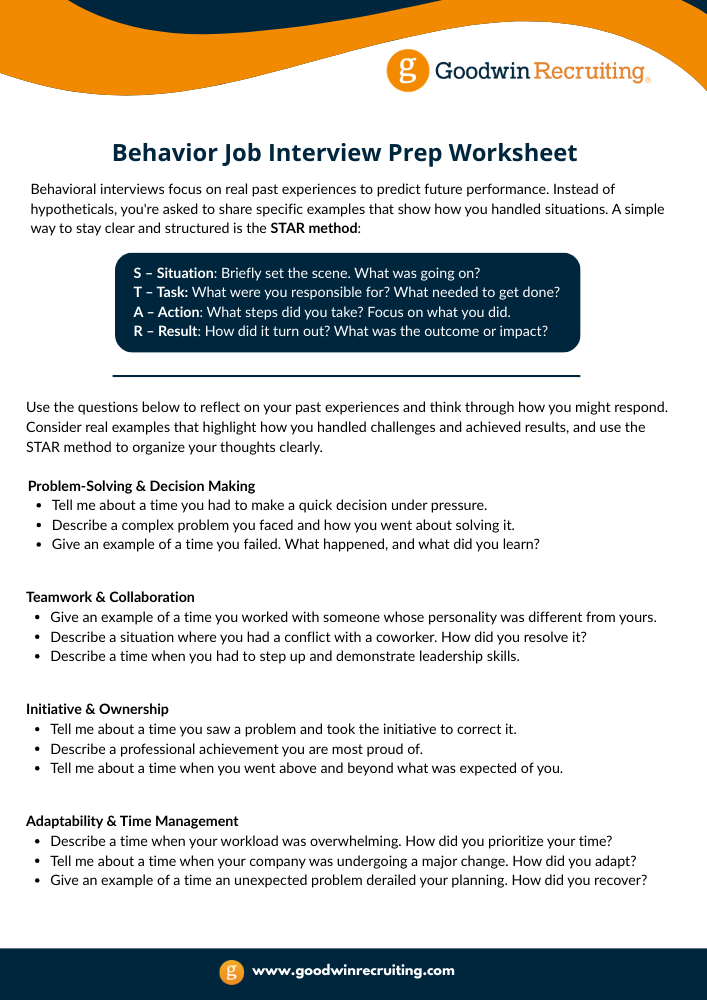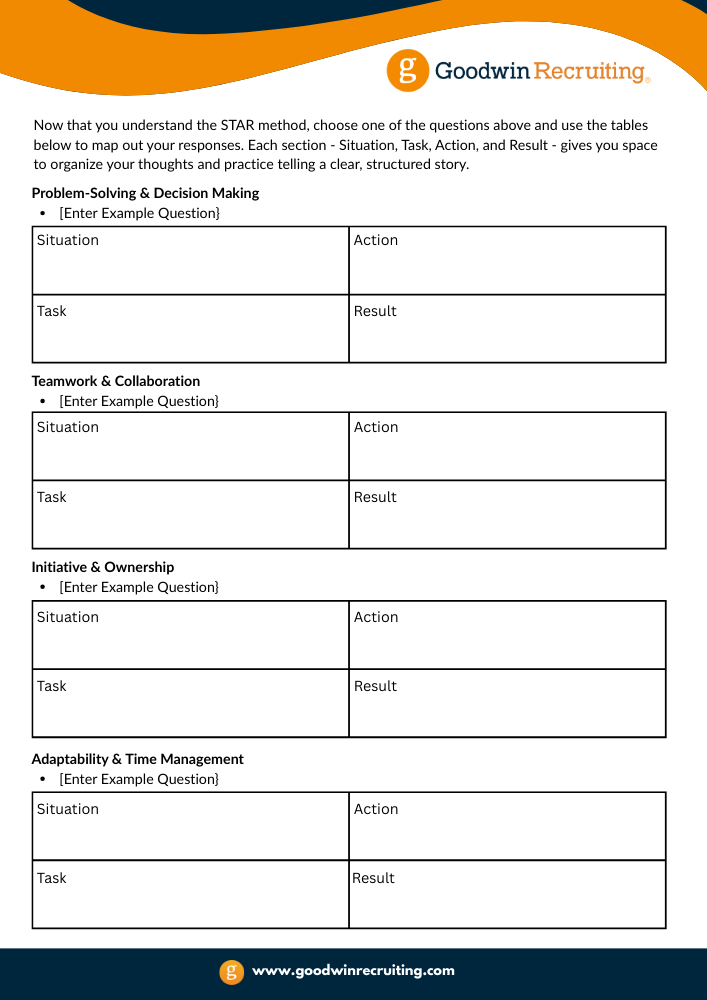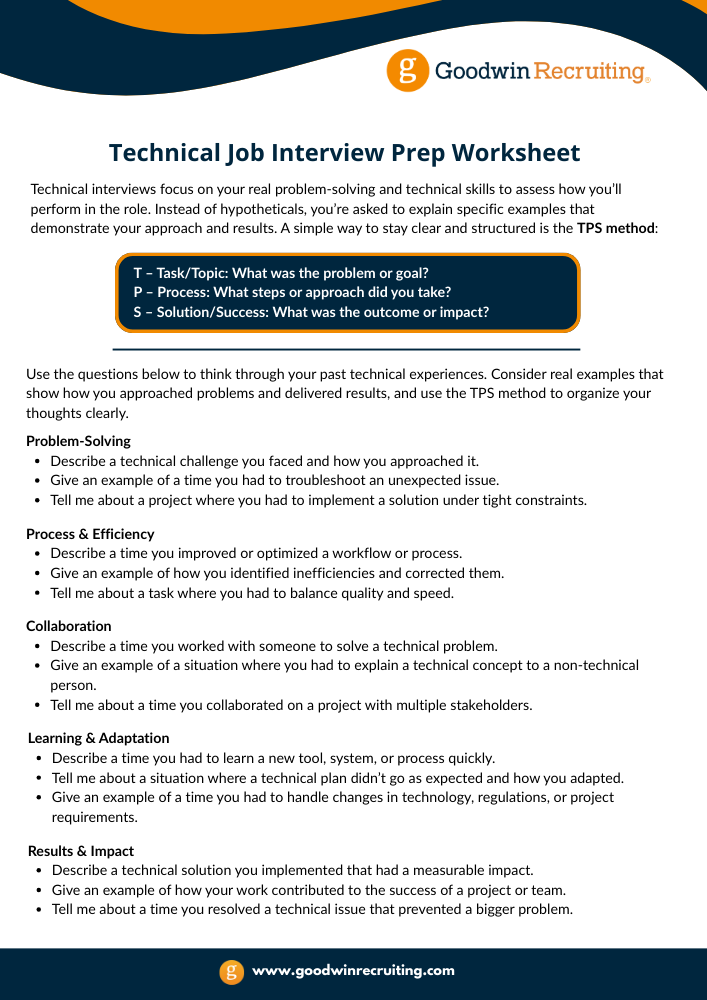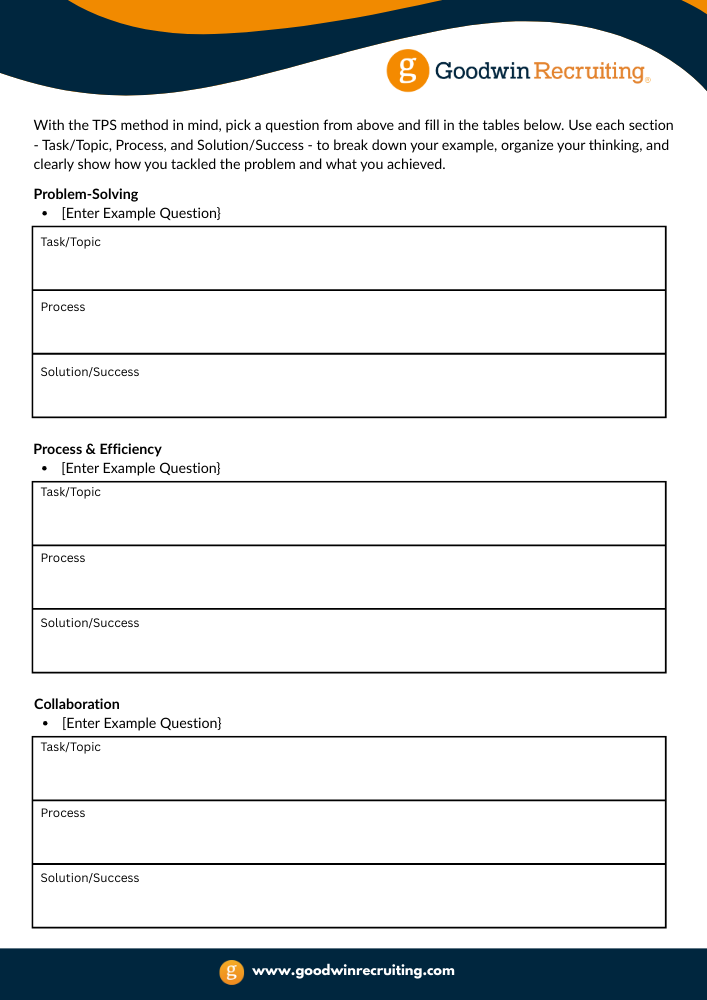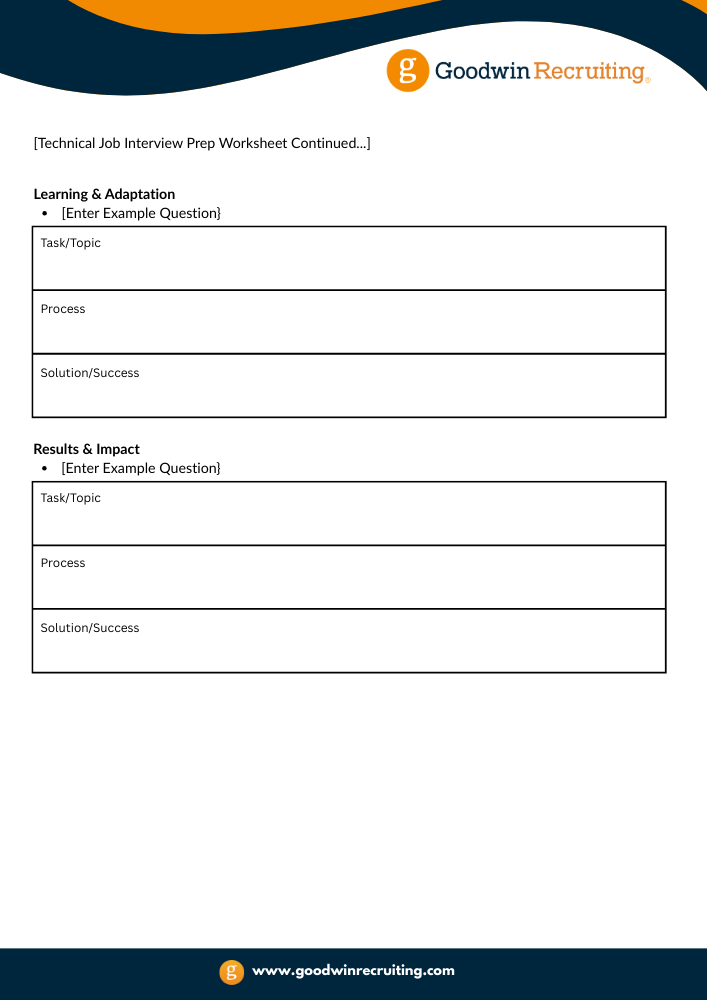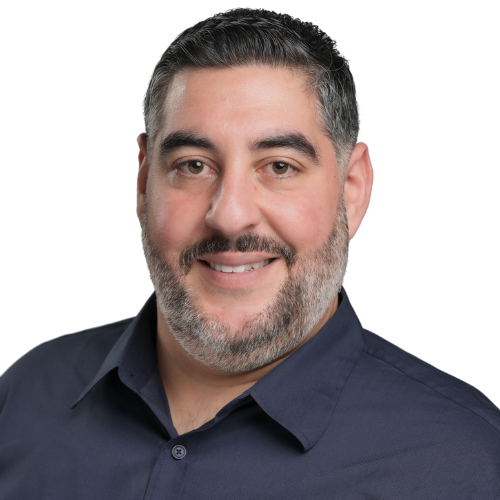Interview Preparation
A successful interview is more than just answering questions. It is your chance to bring your story to life. In a competitive job market, even the most impressive resumes can fall short without strong interview performance. That is why understanding how to prepare effectively is essential. From researching the company to practicing your responses and building confidence, preparation can be the key that sets you apart.
Company Research
A key first step in preparation is learning about the company you hope to join. What do they value? What challenges are they solving? Where are they headed next? When you do the work to learn about a company, you’re better equipped to speak with clarity, ask smarter questions, and show that you're not just looking for any job. You are looking for this one.
And once you know what matters to them, it becomes easier to reflect on what matters to you and how the two connect.
The more effort you put into research, the more confident and specific your answers will be.
Here is a guide you can use to conduct research on the companies you're applying to:
Ohio State University - Company Research Guide ⟶
Shape Your Story with Self-Reflection
Using the company research you performed will allow you to shape your story in a way that highlights the experiences, skills, and strengths that best align with the company and the role for which you will be interviewing.
Your Story in 3 Parts: Present, Past, Future
Before you start prepping answers or memorizing scripts, take a step back. A job interview is an opportunity to reflect on who you are, recognize how far you’ve come, and clarify why this next step is meaningful for you.
That’s where the “Present, Past, Future” framework comes in. It’s not just for answering a single question. It’s a way to reset your mindset. Use it to reconnect with your story. Let it bring clarity to why you applied in the first place and what makes this opportunity meaningful to you.
When you take the time to reflect through this lens, your answers to the most common interview questions feel honest, intentional, and aligned... not forced.
Now let’s see how this mindset applies to the questions you’re most likely to be asked. Here are some examples:
At Goodwin Recruiting, we believe strong interviews start with self-awareness and preparation that feels personal, not rehearsed. That is why our resources are designed to help you dig deeper, stay grounded in your story, and approach each question with clarity and confidence, not just the “right” answer.
Want more structure and support as you prepare? Explore our set of interview prep tools below to keep practicing with purpose.
Interview Practice
Ready to put your preparation into action? Our interview practice worksheets make it easier to craft strong, thoughtful responses to both behavioral and technical questions. Whether you are just starting out or refining your approach, these worksheets offer clear structure and prompts to help you practice with purpose. Try one out and see how quickly your answers can go from uncertain to confident.
Now let's take it a step further with our voice recorder tool. Recording your responses helps you hear how you come across, identify areas for improvement, and build confidence in your delivery. It's a simple but powerful way to make your practice feel more like the real thing.
🎙️ Voice Recorder
How to Use a Voice Recording Tool Effectively for Interview Practice
- Treat it like a real interview.
Find a quiet spot, sit up straight, and speak as if you're in a live interview. It'll help you get comfortable with the format. - Start with common questions.
Try ones like “Tell me about yourself” or “What’s your biggest strength?” These often come up early and set the tone. - Listen for clarity and tone.
Play back your answers. Are you mumbling, talking too fast, or using too many filler words? Aim for clear, natural speech. - Watch your pacing.
Are you rushing through your answers or taking long pauses? Practice pacing yourself so your responses sound confident and well thought out. - Check your content.
Make sure your answers are structured and relevant. For behavioral questions or technical questions, look back at the practice worksheets above. - Practice multiple takes.
Record the same question a few times. You’ll refine your delivery and likely get better with each try. - Track your progress.
Save your recordings to see how you improve over time. It’s a great confidence booster and a way to sharpen your skills.
Questions to Ask the Interviewer
Asking good questions is not just about showing interest. It is how you turn an interview into a real conversation. The right questions help you learn more about the company, the people you would be working with, and whether the role feels like the right fit for you.
The questions you ask are also your best opportunity to understand what matters most to the company right now. As you listen, pay attention to what the interviewer says about their goals, challenges, and priorities. This is where you can start to connect what you bring to what they need.
If they mention an initiative, change, or area of focus that sounds familiar, share a short, relevant example from your experience.
“That’s really interesting. At my last company, I helped with something similar when we were expanding into new markets. I built out a client onboarding process that reduced setup time by 30%, which made the transition much smoother.”
You do not have to know everything before the interview. Just stay curious, listen closely, and look for moments where your experience aligns with what they are sharing. It is one of the easiest ways to show genuine understanding and value.
Below are some natural, open-ended questions you can ask in almost any interview. Choose the ones that feel most authentic to you and use them to keep the conversation flowing.
Pro Tip
Pick a few questions that feel natural to you. This is not a checklist. Focus on creating real dialogue. The more curious and engaged you are, the easier it becomes to connect your experience to what the company is looking for.
Every interview is a chance to share your story and learn where you can make an impact. When you combine preparation, curiosity, and confidence, you are not just answering questions. You are showing why you belong in the conversation.


